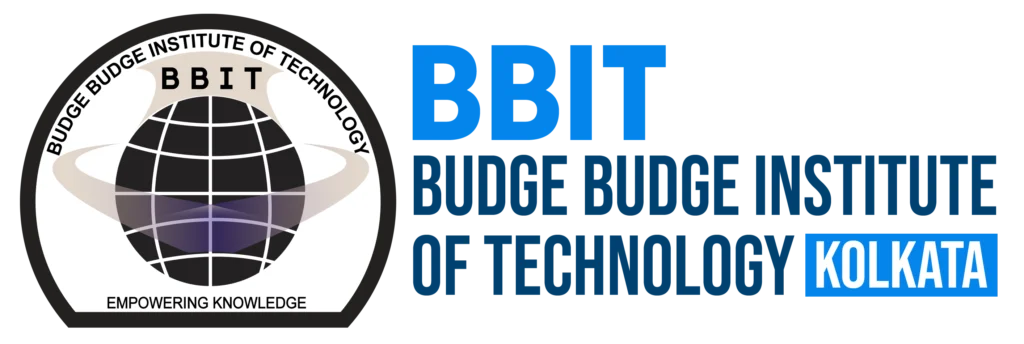B.Tech in Electronics & Communications Engineering (ECE)
DURATION: 3 YEARS
Become Leaders of Tomorrow!
Electronics and Communication Engineering is a premier undergraduate program that spans four years, focusing on the design and development of everyday devices such as mobile phones, portable music devices, and computers. This program provides opportunities to advance in telecommunications, robotics, computing hardware, and power and electrical equipment.
Admission to the B.Tech in Electronics and Communication Engineering at BBIT College, Kolkata, is based on entrance examinations. Prospective students should ensure they meet the eligibility criteria and familiarize themselves with the program’s syllabus. A career in Electronics and Communication Engineering offers a broad range of opportunities in both the public and private sectors.

Program Outcomes (POs):
Engineering Knowledge
Apply knowledge of mathematics, science, engineering fundamentals, and specialization to solve complex engineering problems.
Problem Analysis
Identify, formulate, review research literature, and analyze complex engineering problems to reach conclusions using fundamental principles.
Design/Development of Solutions
Design solutions for complex engineering problems and system components with consideration for public health, safety, and cultural, societal, and environmental factors.
Conduct Investigations of Complex Problems
Use research-based knowledge and methods to design experiments, analyze data, and synthesize information to provide valid conclusions.
Modern Tool Usage
Create, select, and apply modern engineering and IT tools for complex activities, with an understanding of their limitations.
The Engineer and Society
Assess societal, health, safety, legal, and cultural issues and responsibilities relevant to professional engineering practice.
Environment and Sustainability
Understand the impact of engineering solutions on societal and environmental contexts and demonstrate the need for sustainable development.
Ethics
Apply ethical principles and commit to professional ethics and norms of engineering practice.
Individual and Team Work
Function effectively as an individual, and as a member or leader in diverse and multidisciplinary teams.
Communication
Communicate effectively on complex engineering activities with the community and society, including writing reports, making presentations, and giving and receiving instructions.
Project Management and Finance
Apply engineering and management principles to manage projects and work in multidisciplinary environments.
Life-long Learning
Recognize the need for and engage in independent and life-long learning in the context of technological change.
Program Educational Objectives (PEOs):
Domain Knowledge
Equip graduates with fundamental concepts of basic science, engineering knowledge, and technical competency to work effectively in various fields.
Design and Engineering
Develop skills and proficiency in designing electronic circuits and systems and their applications.
Projects and Laboratories
Provide practical exposure to modern instruments and facilitate regular industrial training to meet industry requirements.
Research and Development
Produce graduates capable of undertaking research and development to benefit society.
Professional Outlook
Impart professional and ethical attitudes, effective communication skills, and teamwork abilities to contribute to industry and academia.
Program Specific Objectives (PSOs):

Critically analyze complex power system scenarios and propose solutions using acquired theoretical and practical knowledge.

Work on defined projects by interpreting power system data to provide real-time solutions to system issues

Identify optimal solutions to enhance power transfer capability, improve power quality, and ensure reliability.
This program is ideal for individuals passionate about manufacturing and designing power systems, who possess strong problem-solving abilities and a desire to pursue rewarding careers in electrical system design, development, and maintenance, ensuring quality, safety, reliability, and sustainability.
Program Specific Outcomes (PSOs):
Real-Life Problem Formulation
Formulate and develop solutions for real-life problems in electronic devices, signal processing, communication, and networking systems.
Mathematical and Computational Skills
Acquire skills in mathematical modeling, analytical, programming, and computational skills using modern hardware and software tools.
Communication and Networking Systems
Analyze, design, and simulate communication and networking systems, validating their performance for real-life applications.
Interdisciplinary Integration
Integrate concepts from embedded systems, VLSI, IoT, and AI to provide solutions for societal development.
Potential Job Roles
Electronics Engineer
Focuses on designing, developing, and testing electronic systems and devices.
Field Test Engineer
Specializes in testing and validating electronic systems and equipment in real-world conditions.
Network Planning Engineer
Works on designing and optimizing network infrastructure to ensure efficient communication and data transfer.
Electronics Consultant
Provides expert advice on the design and implementation of electronic systems and solutions for various applications
Program Overview & Structure
Theory:
- English Language and Technical Communication
- Chemistry-1
- Mathematics-1
- Basic Electrical and Electronic Engineering – 1
- Engg. Mechanics
Practical:
- Chemistry-1
- Basic Electrical and Electronic Engineering -1
- Workshop Practice
- Language Laboratory
- Extra Curricular Activities (NSS/NCC/NSO etc)
Theory:
- Basic Computation and Principles of Computer Programming
- Physics-1
- Mathematics-2
- Basic Electrical and Electronic Engineering – II
- Engineering Thermodynamics and Fluid Mechanics
Practical:
- Basic Computation and Principles of Computer Programming
- Physics-1
- Basic Electrical and Electronic Engineering- II
- Basic Engg Drawing and Computer Graphics
Theory:
- Numerical Methods
- Mathematics-III
- Circuit Theory and Networks
- Solid State Device
- Signals and Systems
- Analog Electronic Circuits
Practical:
- Numerical Lab
- Circuit Theory and Network Lab
- Solid State Devices
- Signal System Lab
- Analog Electronic Circuits Lab
Theory:
- Values and Ethics in Profession
- Physics-II
- Basic Environmental Engineering and Elementary Biology
- EM Theory and Transmission Lines
- Digital Electronic and Integrated Circuits
Practical:
- Technical Report Writing and Language Lab Practice
- Physics-II Lab
- EM Theory and Tx Lines Lab
- Digital Electronic and Integrated Circuits Lab
Theory:
- Economics for Engineers
- Analog Communication
- Microprocessors and Microcontrollers
- Control System
Free Elective:
- Computer Architecture
- Data structure and C
Practical:
- Analog Communication
- Microprocessors and Microcontrollers Control System
Free Elective:
- Computer Architecture
- Data structure and C
Theory:
- Principles of Management
- Digital Communications
- Digital Signal Processing
- Telecommunication System
Elective (No Lab):
- Antenna Theory and Propagation
- Information Theory and Coding
Free Elective (With Lab):
- Object Oriented Programming (IT)
- Programming Language (CSE)
- Electronic Measurement and Instrumentation(EI)
Practical:
- Digital Communications Lab
- Digital Signal Processing Lab
Free Elective:
- Object Oriented Programming Lab (IT)
- Programming Language Lab (CSE)
- Electronic Measurement and Instrumentation Lab (EI)
- Seminar
Theory:
- Wireless Communication and N/W
- Microelectronics and VLSI Designs
Elective (With Lab):
- RF and Microwave Engg.
- Optical Communication and N/W
- Computer Networks
- FPGA and Reconfigurable Computing
Elective (No Lab):
- Radar Engg
- Embedded Systems
- Biomedical Instrumentation
Free Elective (No Lab):
- Artificial Intelligence (CSE)
- Robotics (CSE )
- Data Base Management System
- Power Electronics
Practical:
- Group Discussion
- VLSI Design Lab
Elective:
- RF and Microwave Engg. Lab
- Optical Communication and N/W Lab
- Computer Networks Lab
- FPGA and Reconfigurable Computing lab
Free Elective:
- Artificial Intelligence Lab(CSE)
- Robotics lab(CSE)
- Data Base Management System Lab (CSE)
- Power Electronics Lab(EE)
- Industrial training
- Project part 1
Theory:
- Organizational Behavior
Elective:
- Smart Antenna
- Digital Image Processing
- Satellite Communication and Remote Sensing
- Neural N/W and Applications (CSE)
- Material Sc. andEngg (Mat. Sc)
- Renewable Energy (EE)
- Audio and Speech Processing (CSE)
Practical:
- Design Lab / Industrial problem related practical training
- Project part-2
- Grand viva
Eligibility Criteria
B. Tech: Sr. Secondary (10+2) in PCM/PCMB with minimum 50% marks from recognized Board / University
Fees Structure
24 Months EMI
₹4,583*
Interest free
Per Semester Fee
₹27,500*
Full Program Fee
₹1,65,000
Meet our Top Rank Faculties

DR. DEEPAK KUMAR NAYAK
Professor, ME/M. Tech and PhD

CHAMPAK ADHIKARI
Assistant Professor, M.E/M.Tech

DR. RAHUL BOSU
Associate Professor, ME/M. Tech and PhD

NIBEDITA MUKHERJEE
Assistant Professor, M.E/M.Tech

TANIA PAUL
Assistant Professor, M.E/M.Tech

KAKALI SENGUPTA (DAS)
Assistant Professor, M.E/M.Tech

DR. SUMANTA BHATTACHARYYA
Associate Professor, ME/M. Tech and PhD

SOURABH BASAK
Assistant Professor, M.E/M.Tech

SAYERI DUTTA
Assistant Professor, M.E/M.Tech

DEBARGHYA ROYA
Assistant Professor, M.E/M.Tech

DR. DEEPAK KUMAR NAYAK
Professor, ME/M. Tech and PhD

DR. RAHUL BOSU
Associate Professor, ME/M. Tech and PhD
Upraise your Career Now with BBIT's M.Tech Program.

State-of-the-Art:

Vision
To develop a skilled and innovative pool of technocrats in Electronics and Communication Engineering by integrating quality education, cutting-edge research, and innovative practices.

Mission
To provide students with exposure to advanced academic and technical programs, develop skills to meet emerging challenges, and foster research and innovation through collaborations with industry and academia.

